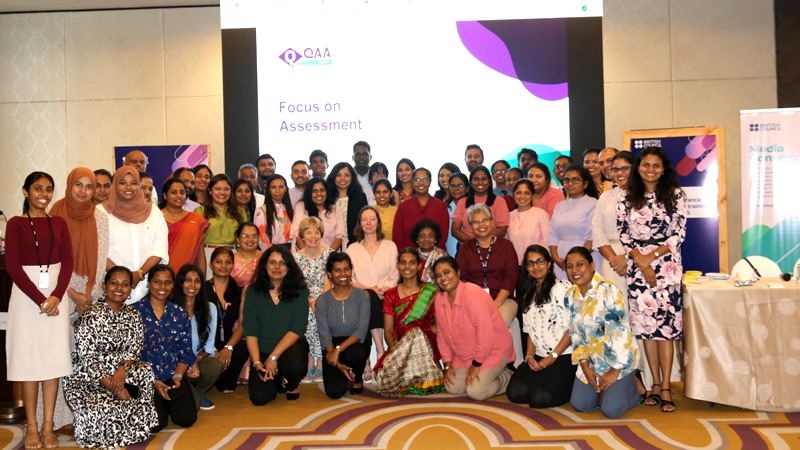The British Council in Sri Lanka concluded a four-day capacity-building workshop series on 30 May, focused on strengthening quality assurance in transnational education (TNE). Over 100 senior academics, quality specialists, and administrators participated, marking a key step toward ensuring consistent, high-quality delivery of UK-affiliated programmes in Sri Lanka.
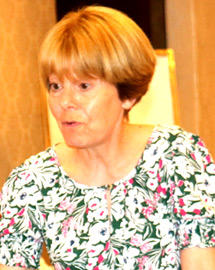
Dr. Jenny Cann (Quality Manager, UK Quality Assurance Agency for Higher Education)
Led by Dr. Jenny Cann (UK QAA) and Krisztina Ford (International QA Specialist), the sessions equipped TNE providers with practical frameworks for programme design, institutional governance, and quality enhancement aligned to global standards.
The workshops covered the full TNE lifecycle, from building partnerships and curriculum design to assessment, student voice, and governance. The final day tackled emerging challenges, such as digital learning, AI, and the complexity of managing global partnerships.
“This wasn’t just about ticking boxes,” said Zahra Nawfer from BMS. “It reminded us that quality is a shared ethos. The format encouraged reflection and peer learning.”
With Sri Lanka being the second-largest host of UK TNE globally (60,000+ enrolments), the initiative addressed sector needs identified in a British Council–Times Higher Education study—particularly on transparency, data practices, and capacity building.
Participants reported tangible takeaways. “The focus on embedding employability in curriculum design was a game-changer,” said Dr. Krishani Anuradha Jayasinghe of Saegis Campus. “We’re already planning internal workshops.” Others, like Mary Lanshiya of BIET, noted the sessions helped clarify their strategic direction with UK partners.
The workshops created space for cross-sector engagement, drawing input from academics, administrators, and regulators alike. “The diversity made discussions richer,” said Pavithra Wickramasuriya from NIBM. A LinkedIn group for ongoing collaboration was proposed and well-received.
Facilitators were praised for their practical insights and ability to contextualise global best practices. “Their clarity and openness made complex topics accessible,” said Thilini Hettiarachchi. Dr. Cann noted the strong commitment to quality: “There’s real potential here. Continued collaboration will be key to strengthening Sri Lanka’s TNE sector.”
British Council in Sri Lanka concluded a four day series of capacity-building workshops on 30 May, aimed at strengthening quality assurance and enhancement in transnational education (TNE). Bringing together over 100 senior academics, quality specialists, and administrators from across the higher education sector, the initiative marked a significant step towards advancing consistent, high-quality delivery of UK-affiliated programmes in Sri Lanka.
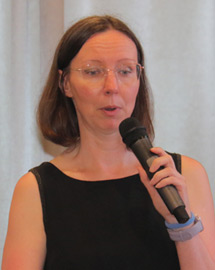
Krisztina Ford (International Quality Assurance and Enhancement Specialist)
The workshops, led by Dr. Jenny Cann (Quality Manager, UK Quality Assurance Agency for Higher Education) and Krisztina Ford (International Quality Assurance and Enhancement Specialist), were designed to equip TNE providers with practical tools and frameworks to align with global standards — from programme design to institutional governance.
Structured Learning Across the TNE Lifecycle
Held over four days, the sessions provided a comprehensive walk-through of the TNE quality assurance cycle, addressing foundational areas such as building partnerships and institutional governance, followed by deep dives into curriculum design, data-driven monitoring, assessment strategies, staff development, student voice, and quality enhancement.
The final day explored 21st-century challenges including artificial intelligence, digital learning technologies, and the operational demands of managing TNE partnerships in a rapidly evolving global landscape.
“This wasn’t just about ticking boxes. Each session added depth to how we think about quality — not just as a process but as an ethos,” said Zahra Nawfer, Academic Lead at the Northumbria University Academic Support Centre and member of the BMS Centre for Quality Assurance Management Committee. “The workshops reminded us that quality is a shared responsibility. The design was refreshingly interactive — we were constantly reflecting, sharing, and learning from each other.”
A Timely Initiative for a Growing Sector
Sri Lanka is currently the second-largest host for UK TNE globally, with around 60,000 enrolments — a number that continues to grow. As the sector expands, so does the imperative to ensure robust quality assurance mechanisms that uphold the academic integrity of programmes and provide a meaningful student experience.
This series directly responded to recommendations from a British Council and Times Higher Education research study, which highlighted the need for sector-wide training, improved data practices, and enhanced transparency in partnership structures.
“The practical relevance of the discussions has already begun to inform and enrich our internal QA practices,” said Prof. Ruvan Abeysekara, Vice Chancellor and Quality Nominee, BCAS Campus. “We are already exploring how best to align our institutional processes with international best practices showcased during the sessions.”
Applying Learning on the Ground
Many institutions noted that the workshops offered actionable takeaways that could be implemented immediately.
“The session on programme design and review stood out for me,” said Dr. Krishani Anuradha Jayasinghe, Director – Academic and International Affairs, Saegis Campus. “The focus on scaffolding and embedding employability helped us rethink how to integrate industry relevance into curriculum design from the outset. We’re now planning internal workshops to cascade the learning.”
“These sessions came at a critical time for us,” said Mary Lanshiya from British Institute of Engineering & Technology. “We’ve been reviewing our TNE delivery model and these workshops helped clarify how we can work more strategically with our UK partner.”
Others appreciated the balance between structured content and space for discussion.
“I found the case studies on enhancement projects especially useful,” said Prof. Mahesha Kapurubandara, Director – Academic Affairs, SLIIT City Uni. “They gave us a window into global practice, and sparked ideas we can adapt for our own institutional context.”
Collaboration and Conversation at the Core
A standout feature of the programme was the emphasis on dialogue. With participants ranging from senior management to early-career academics, and including representatives from public institutions and regulatory bodies, the sessions created space for cross-sector engagement.
“The diversity in the room made the discussions richer,” said Pavithra Wickramasuriya, Head of the Productivity and Quality Centre at the National Institute of Business Management. “Although I attended only the last two days, the relevance and practicality of the sessions were very clear. I hope future sessions continue exploring new areas like pedagogy trends and tech in student assessment.”
Vihanga Jayasinghe, Lecturer at APIIT, echoed this: “The workshop was a great opportunity to connect with others in the sector. I have already begun integrating several best practices into my teaching and admin work.”
Several participants called for a sustained platform to keep the conversations going. A LinkedIn group for TNE quality professionals was proposed and widely welcomed.
Expert Facilitation and Deep Sector Experience
Both facilitators, Dr. Jenny Cann and Krisztina Ford, were widely praised for their clarity, openness, and ability to make complex themes accessible.
“The presenters made a real effort to ground the sessions in the Sri Lankan context,” said Thilini Hettiarachchi, Lecturer in Computing. “Their insights on peer observation, marking criteria, and student belonging were particularly helpful. I’m already using what I’ve learned.”
Dr. Cann, who has worked with global partners on quality assurance and enhancement, said she was impressed by the level of engagement shown by Sri Lankan TNE providers.
“The commitment to quality was evident throughout,” she said. “There’s real potential in Sri Lanka — both in terms of institutional capacity and the appetite for innovation. Continued support, transparency and collaboration between partners will be key to strengthening the sector.”
British Council’s Commitment to TNE Quality
Orlando Edwards, Country Director of the British Council in Sri Lanka, noted that the workshops are part of a broader strategy to support quality and inclusion in higher education.
“As TNE grows in scale and complexity, quality assurance must grow with it,” he said. “Our aim is to equip institutions with the knowledge and tools they need to lead this transformation — not just meet standards but set them.”
Hamzi Haniff, Manager – Education Programmes at the British Council, highlighted the sector-wide spirit of collaboration that shaped the workshops.
“It was especially heartening to witness how openly institutions shared their experiences — even though many are technically competitors,” she said. “That willingness to work together reflects a shared commitment to quality. At the British Council, we see this as part of a bigger picture — helping Sri Lanka grow its TNE sector not just in numbers, but in value. This is about creating opportunity to strengthen human capital and build a higher education system that is globally respected and locally relevant.”
She added that the British Council remains committed to supporting the sector:
“We will continue to listen to providers and tailor our capacity-building efforts to meet their evolving needs. Our role is to convene, support, and enable the progress that institutions themselves are driving.”
________________________________________
To learn more about the British Council’s higher education programmes and future quality assurance initiatives, visit www.britishcouncil.lk
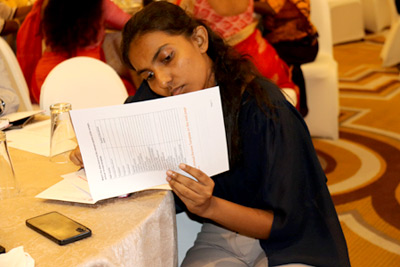 |
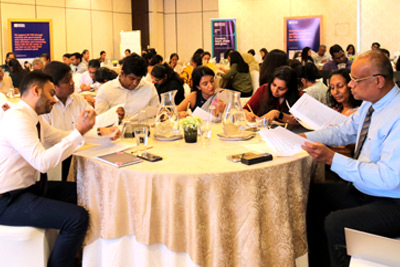 |
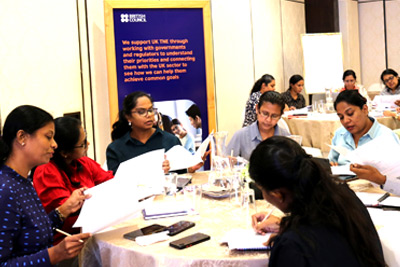 |
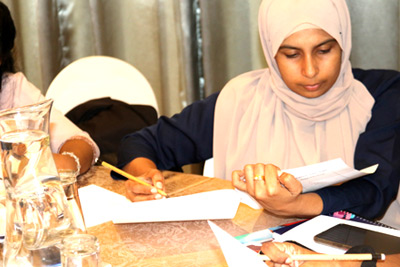 |
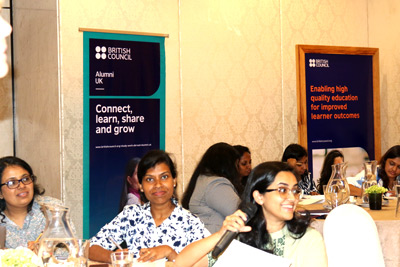 |
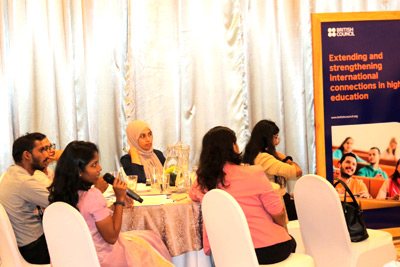 |
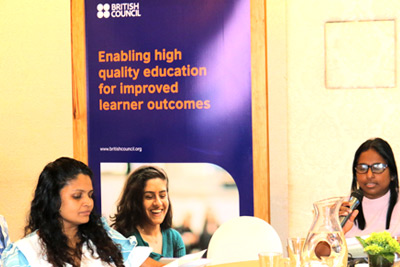 |
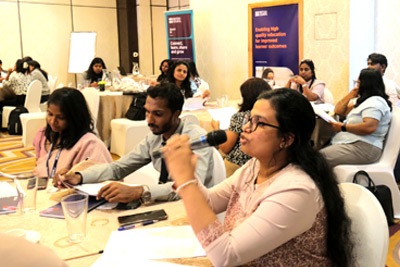 |
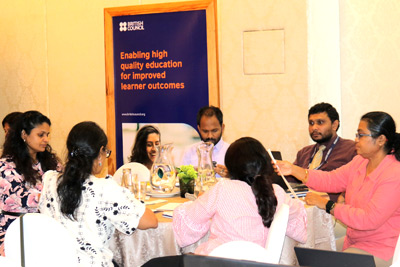 |
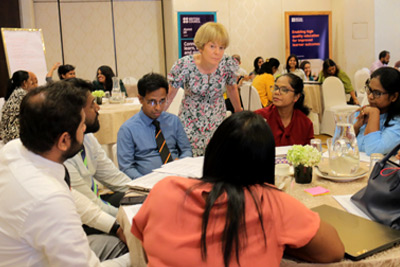 |
 |
|





